Tour de France Femmes: 5 key climbs
Looking beyond the spectacular finale of La Super Planche des Belles Filles
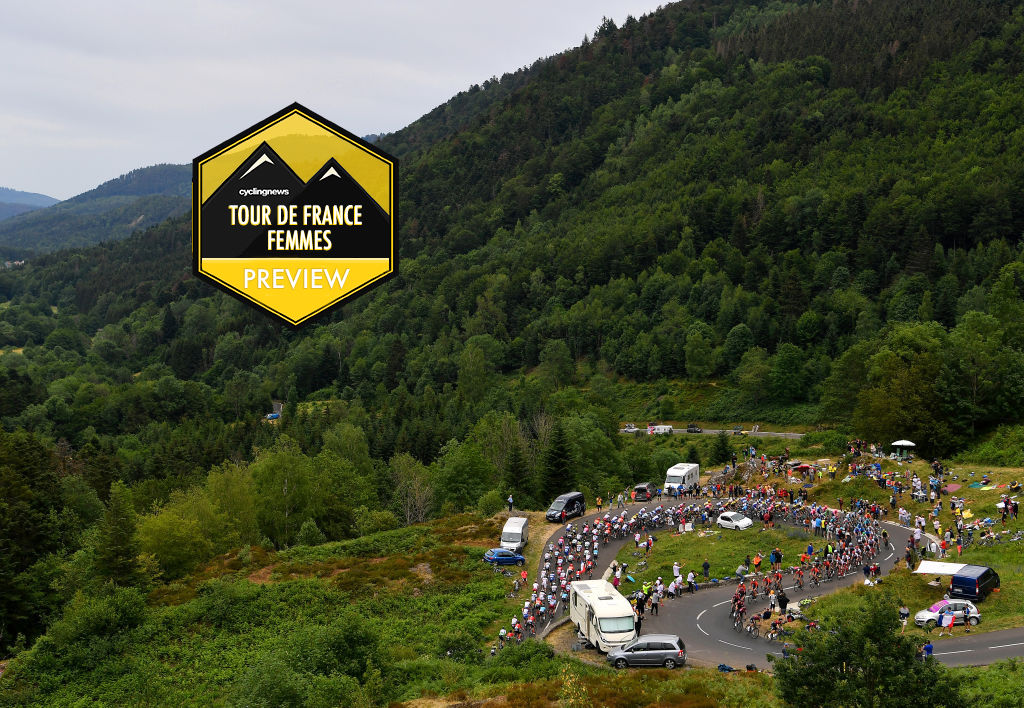
The route revealed for the Tour de France Femmes promised a balance of flat and punchy stages, sectors of gravel, and two mountain finishes all packed into the eight days of racing set to take place from July 24-31.
There is, notably, no individual time trial, and so the smaller separations, so far, have happen throughout the earlier puncheur-style stages, and even on the gravel stage 4 that included six climbs and four sections of unpaved roads in the last 60km of the 126km race from Troyes to Bar-sur-Aube. Stage 5 also proved to be decisive as the longest day of the event at 175.6km, saw a mass crash in the peloton.
Marianne Vos (Jumbo-Visma) has won two stages and has placed in the top five in all of the six stage. She has led the overall classification since winning stage 2 but recognised that she is likely to lose the overall race lead as the race reaches the mountains this weekend.
The race does not travel to the iconic ascents of the Alps or the Pyrenees, as it did in the ASO-run editions held in 1984-89 with the Col du Galibier, Mont Ventoux, Tourmalet, l'Alpe d'Huez or Col de Joux Plane. At this edition of the Tour de France Femmes it will be the north-eastern Vosges that hosts the GC challenges.
The decisive battle for the overall classification will take place on stage 7 into Le Markstein and stage 8 atop La Super Planche des Belles Filles.
The route of the Tour de France Femmes will include 26 categorised ascents, and while the majority of those have been short and steep, the women’s peloton will now contest the bigger and more decisive climbs on the final two days of racing.
Cyclingnews highlights 5 key climbs that will impact how the rest of the race unfolds at the Tour de France Femmes.
The latest race content, interviews, features, reviews and expert buying guides, direct to your inbox!
Petit Ballon
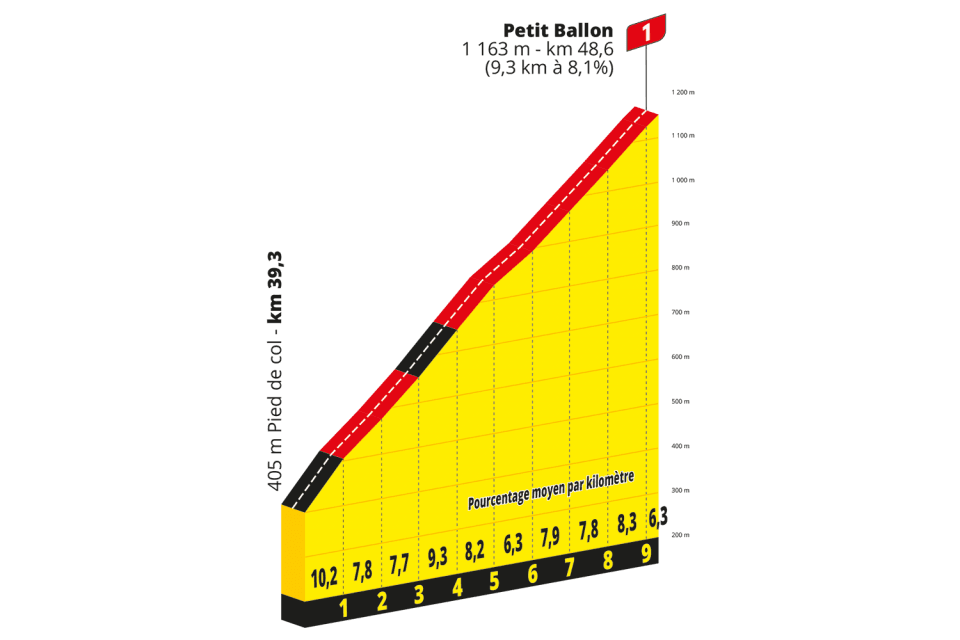
Stage 7 marks the beginning of the mountain stages at the Tour de France.
Petit Ballon is the first of a trio of climbs, a 9km ascent with an average gradient of 8.1%. It peaks at 48.6km into the race. The climb starts out with a 10% ramp for the first kilometre, and while it eases off to 7.7% for the next 2km, it reaches over 9% mid-climb.
The gradient then remains between 6% and 8% for the last 5km. It could mark the first attacks of the stage or it could be warm-up for the mid-race Col du Platzerwasel or the finale up the Grand Ballon.
Kasia Niewiadoma (Canyon-SRAM) believes that this is the toughest climb of the stage, and she expects the peloton to shatter, starting here, and on route to the finish in Le Markstein.
Col du Platzerwasel
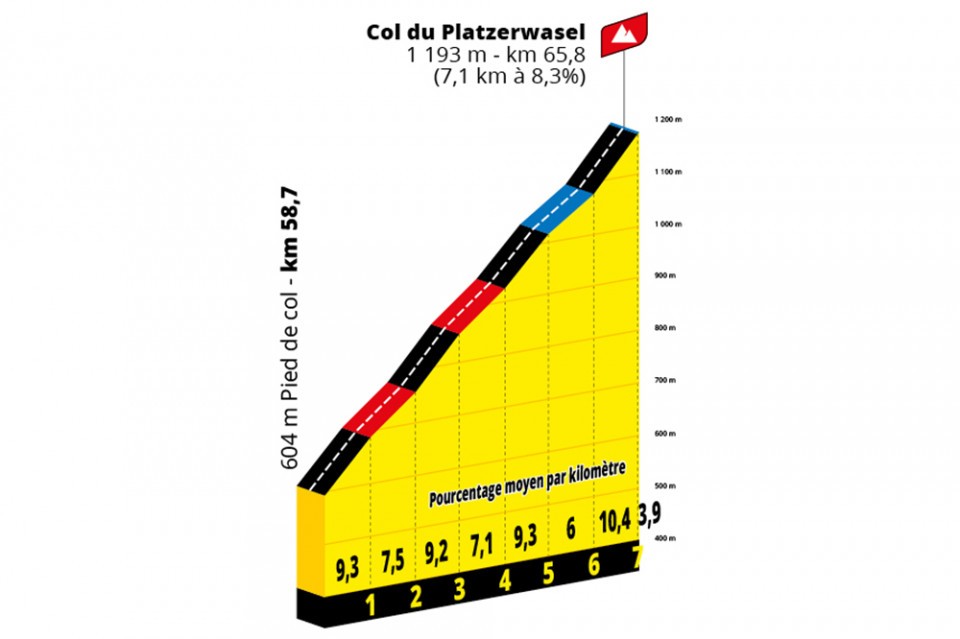
The Col du Platzerwasel is sandwiched between the Petit Ballon and the Grand Ballon on stage 7's 127km route between Sélestat and Le Markstein. It will be one of the toughest stages of the event and that is largely due to the three back-to-back ascents.
The middle climb, Col du Platzerwasel, is 7.1km and while it has an average gradient of 8.3%, it is quite deceiving. The riders will face pitches above 9% in the first, third and fifth kilometre, and while it eases off to 6%, the road ramps back up to 10% for the final kilometre before reaching its peak at roughly the half-way mark of the race.
It is a tough climb, but what makes it even harder is that it is not a standalone ascent with the Petit Ballon ahead of it and the Grand Ballon to follow.
Grand Ballon
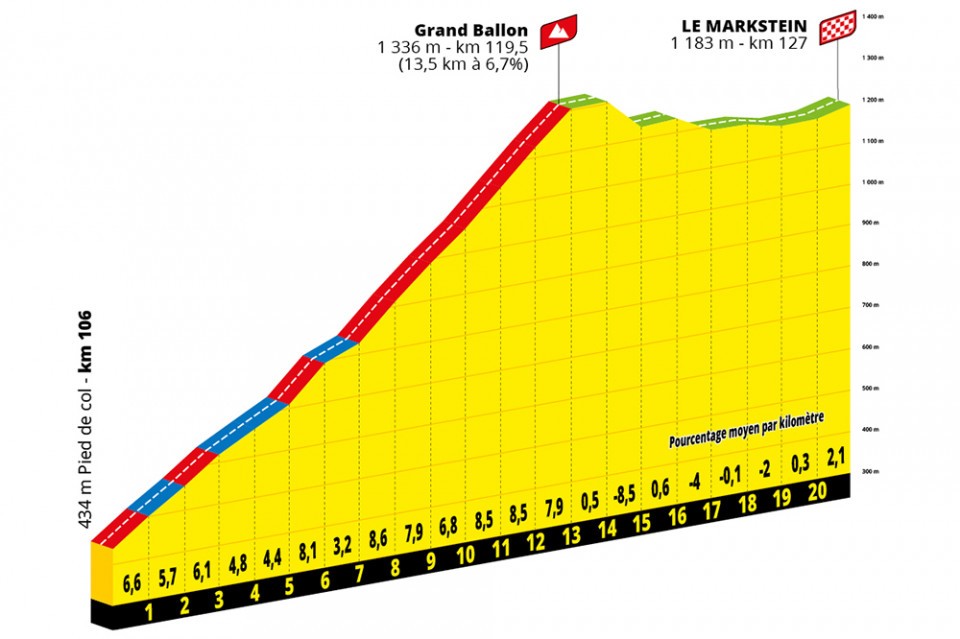
The Grand Ballon is not as steep as the other two, but it is the longest ascent at the Tour de France Femmes, and comes at the end of a hard stage.
The climb averages a more moderate 6.7% with the shallowest sections at the bottom. The final 6km, however, will be a true test of climbing ability with a steady 8.5% all the way over the top.
There will be little reprieve for the riders as they crest the Grand Ballon because the route will follow the ridge for an undulating 8km to the finish line in Le Markstein.
Col du Ballon d'Alsace
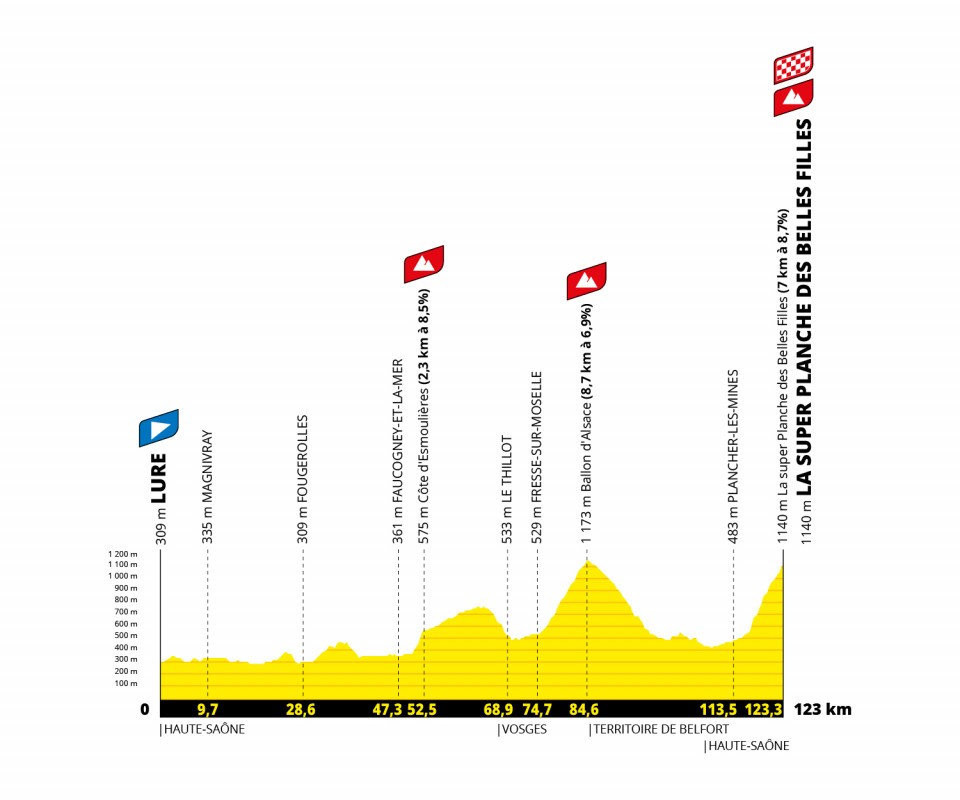
The climbing continues on stage 8, the grand finale of the Tour de France Femmes.
An historical reference places the Ballon d’Alsace as the first official mountain pass of the Tour de France in 1905, and it was included in the 2005 edition to commemorate the 100th anniversary of the first passage.
For the Tour de France Femmes, it will mark the second of three ascents on the finale of stage 8, a 123km race from Lure to Super Planche des Belles Filles.
Ballon d’Alsace is nearly 9km at 6.9%. It starts and finishes at 5% gradient but the kilometres in between are upwards of 7 and 8%. If riders gain time on this ascent, there is a good chance they could hold a gap along the nearly 25km of descending into the base of the La Planche des Belles Filles.
This climb could mark the launching pad for fireworks that will surely take place on the 26th and final climb of the Tour de France Femmes.
La Super Planche des Belles Filles
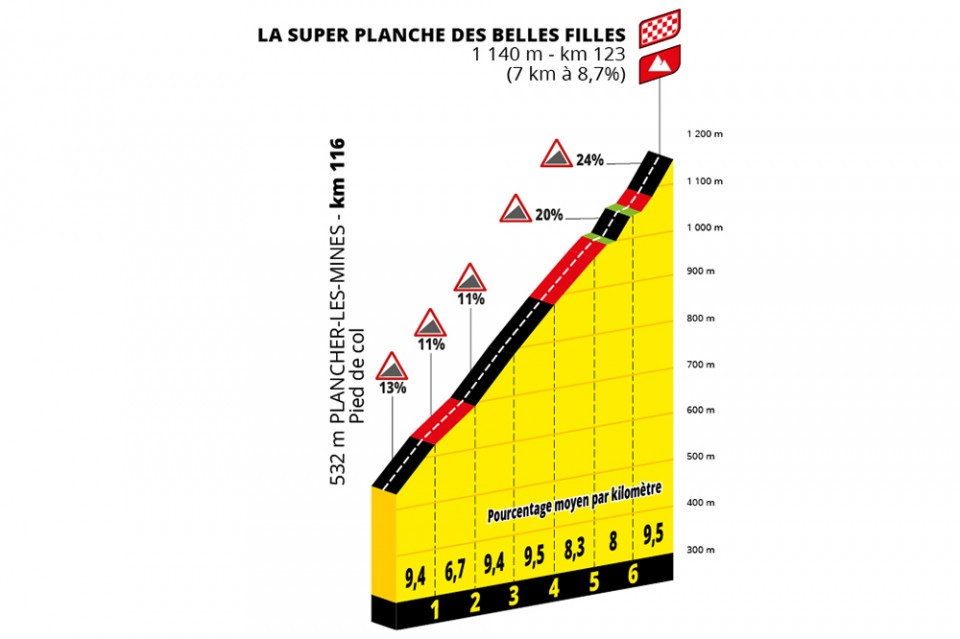
The Tour de France Femmes will close out in the most spectacular way atop the La Super Planche des Belles Filles.
The ascent is most recently known for being the location of stage 7 at this year's men's Tour de France won by Tadej Pogačar, and before that, it was the stage 20 time trial that saw Pogačar take the overall victory at the 2020 Tour de France.
The climb has offered a decisive finale to four other road stages of the men’s edition since 2012.
La Planche des Belles Filles will host the grand finale and likely reveal a showdown between the best climbers in the world who will be in pursuit of the coveted maillot jaune.
The climb is 7km and the first 5.9km tops out at a 20% gradient, however, the ascent goes beyond the traditional finish line, and continues up a steep gravel ascent, hence the name 'Super Planche', and this is where one rider will be crowned the winner of the Tour de France Femmes.

Kirsten Frattini is the Deputy Editor of Cyclingnews, overseeing the global racing content plan.
Kirsten has a background in Kinesiology and Health Science. She has been involved in cycling from the community and grassroots level to professional cycling's biggest races, reporting on the WorldTour, Spring Classics, Tours de France, World Championships and Olympic Games.
She began her sports journalism career with Cyclingnews as a North American Correspondent in 2006. In 2018, Kirsten became Women's Editor – overseeing the content strategy, race coverage and growth of women's professional cycling – before becoming Deputy Editor in 2023.